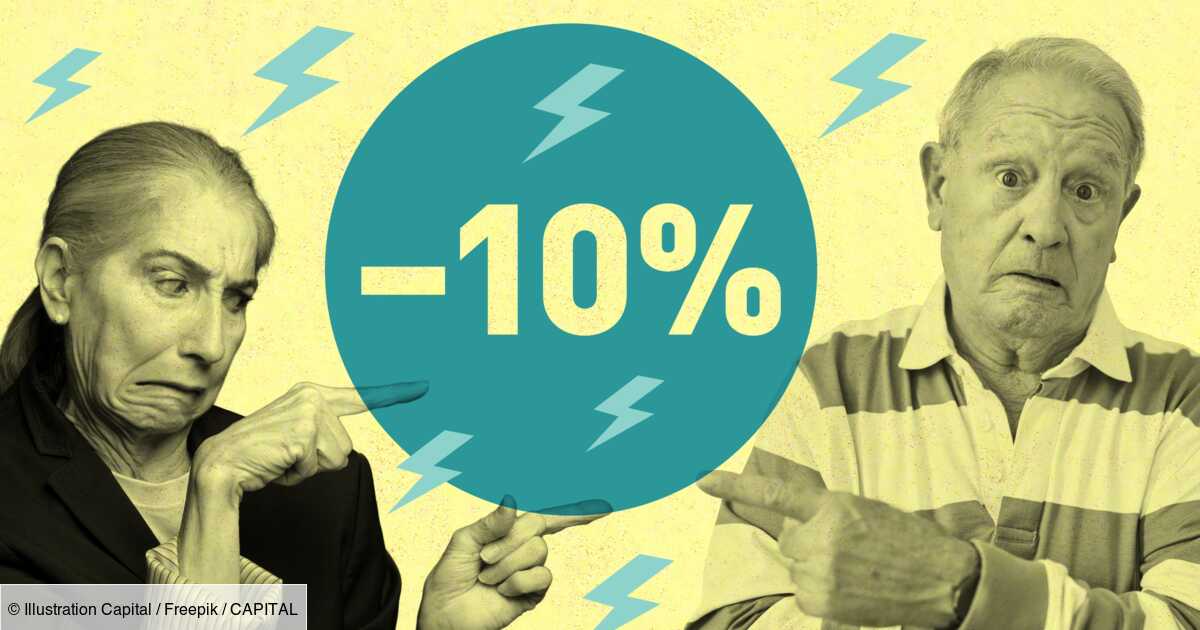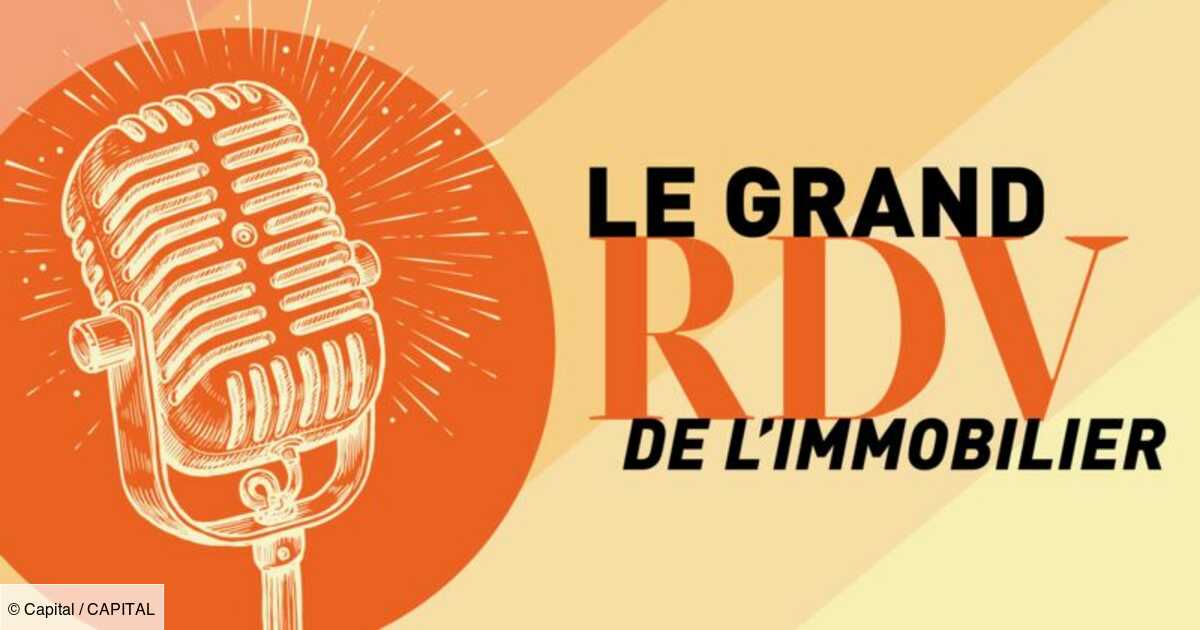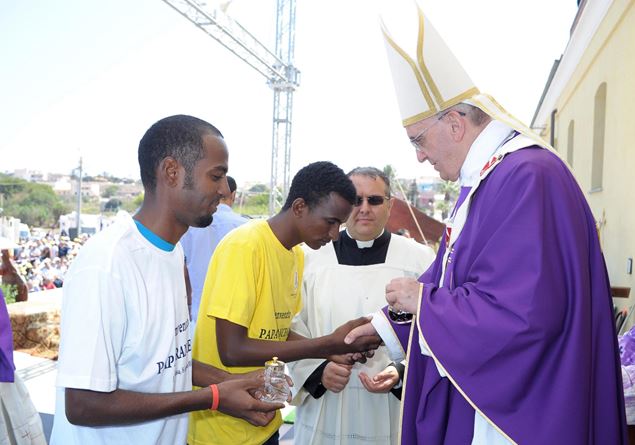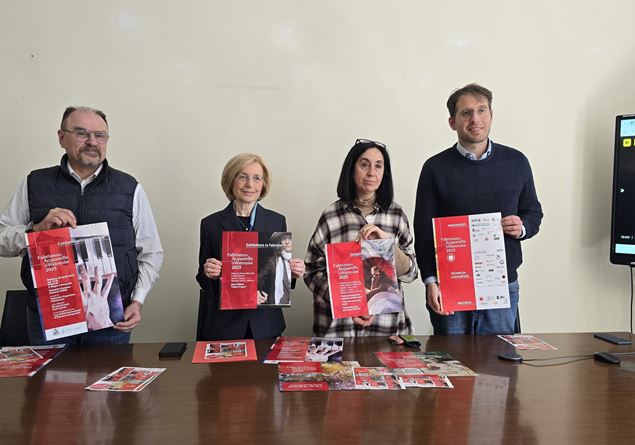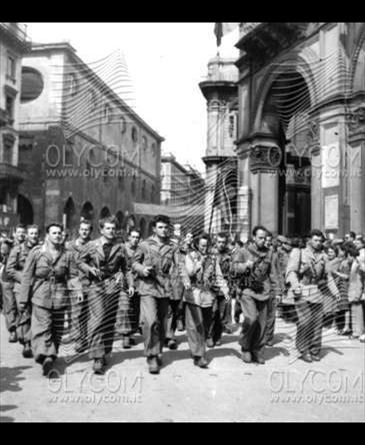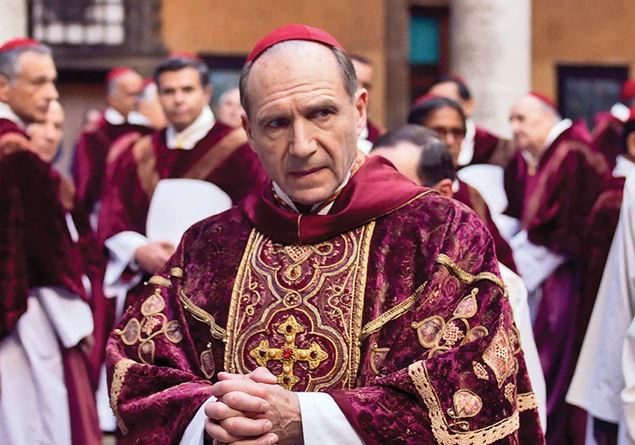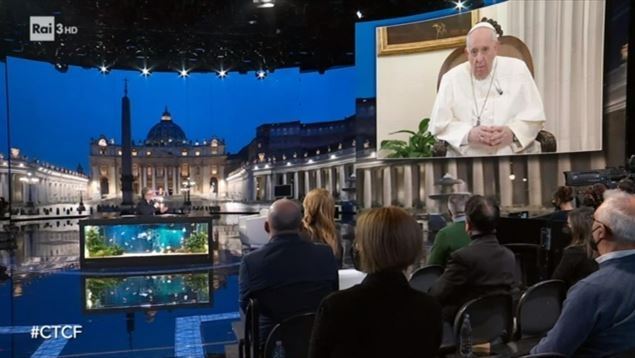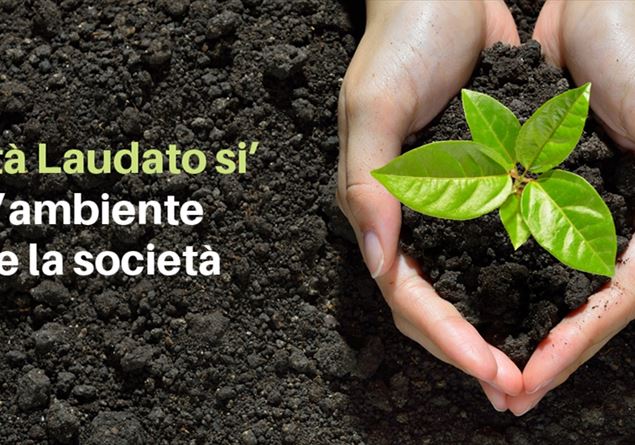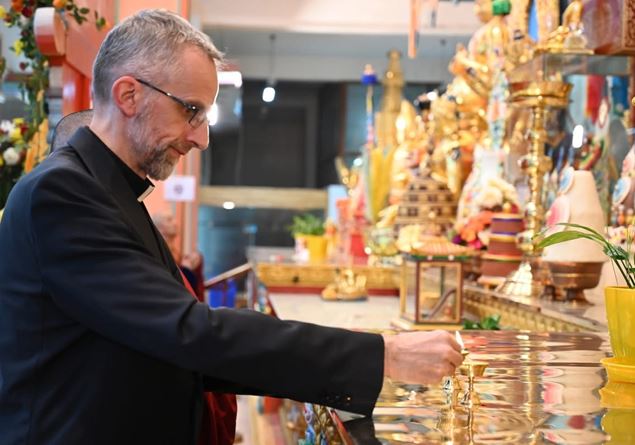Where are Adam? Where is your brother. The words spoken by Pope Francis resound and clear in what was his first apostolic journey, on the island of Lampedusa, a land of hope for the castaways who arrive, a land of pain for those who died at sea. It was July 8, 2013, the door of Europe of the artist Mimmo Paladino never as that day had a wider meaning.
Pope Francis chose Lampedusa because he knew that this was the place where God recalled the whole humanity before the drama of migrants. A visit that was prophetic, because a few months later, on 3 October 2013 368 migrants died in that same island in what is remembered as one of the greatest massacres in the Mediterranean.
From Lampedusa during his homily Pope Francis warned the whole humanity of being the victim of that “globalization of indifference” which makes us “all unnamed, responsible without name and without face”. The crown of flowers thrown into the sea with the fishermen was the first moment of Pope Francis on the island. Then the moment of the solemn mass with his historic homily: “Adam where are you?”, “Where is your brother?, Are the two questions that God asks at the beginning of the history of humanity and which also addresses to all the men of our time, also to us. But I would like us to ask us a third question: Who of us cried for this fact and for facts like this? Who cried for the death of these brothers and sisters? Who cried for these people who were on the boat? For young mothers who brought their children? For these men who wanted something to support their families? We are a society that has forgotten the experience of crying, of “suffering with”: the globalization of indifference has removed the ability to cry! “.
Words that the cardinal Francesco Montenegro Today at the Conclave he recalls why it was he then bishop of Agrigento who welcomed his holiness together with the parish priest Don Stefano Nastasi: “At a certain point he asked us what he meant” O ‘Shià, “, the greeting of the islanders who heard repeat. And when we explained to him that he was a greeting he asked the Omelia’s sheets and he pinned him and in fact then during the homily he greeted precisely with this expression. While then we came to the place where the crown of flowers should have thrown into the sea in memory of the migrants who died in the Mediterranean, he struck me when he got up and estimated himself from everything and everyone ».
The joy of the Lampedusani in seeing Pope Francis is still alive. The ambo and the wooden crosses used for the Holy Mass were made by the craftsman Franco Tuccio, from that moment those crosses obtained with the wood of the boats are a symbol of the drama of migrants. Enza Billeci, photographer Lampedusana recalls: “We crossed with our gaze and it was as if we had told ourselves a whole life”. Giuseppe Fragapane, custodian of the sanctuary of the Madonna of Porto Salvo adds: “For all of us that visit will remain indelible in our heart, we keep it in our prayers”. After Pope Francis’ visit on the island, he always came accompanied by Cardinal Montenegro and Don Stefano, the Elemonisiner Konrad Krajewski.
His presence will follow that of the Pontiff to respond to the requests of migrants who asked for telephone cards that day of July 8 to be able to call their family members. A few weeks later, in secret, thousands of cards destined for migrants present in hotspots came to Lampedusa at the behest of Pope Francis.
In memory of that historic visit destined to shake consciences Filippo Manninothe mayor of Lampedusa, has decided to name the Favaloro pier, a place where migrants land, to Pope Francis: “The power of Francesco’s images that walk the Favaloro pier on foot and lasts his arms towards the sea, launching a crown of flowers, recall his powerful message of brotherhood, peace, welcome, friendship that will remain sculpted in the history of humanity. Here he left an indelible mark, there is a path dedicated to him, with all the photos taken at the time, inside the museum. The particular indicative of the meaning of that visit is that most of the children born that year were called by the parents ‘Francesco’ “, concludes the mayor. Where are Adam? Where is your brother. These are the questions that Pope Francis still puts us today in front of the drama of those who continue to die in the Mediterranean.
